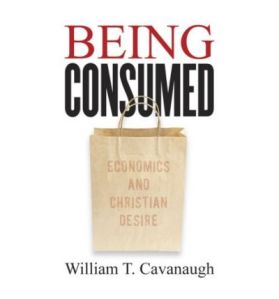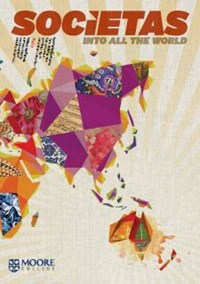Christian leaders across the country have called upon their congregations to make a plebiscite on the definition of marriage a key issue as they decide how to vote on Saturday. These leaders have narrowed the concern from a general opposition to same sex marriage to the specific issue of a plebiscite. But is this concern really so key for Christians?I don’t think so. There are several reasons, but here’s just one to consider.
The claim has been made that not having a plebiscite means not allowing those opposed to same sex marriage the opportunity to have their voice heard. It has been implied that to deny the public a plebiscite on his issue is undemocratic. The next step, usually implicit—though barely—is to note that only one major party has committed to allowing us this democratic freedom.
This line of argument exposes a fundamental misunderstanding of the particular system of democracy we have implemented in Australia. In short: plebiscites are unusual. The government can out a plebiscite to the public on any issue that does not involve changes to the Constitution. Changes to the Constitution can only be made by means of a referendum, the results of which are binding. The results of a plebiscite are not binding. A plebiscite is not defined in the Australian Constitution, the Electoral Act, or the Referendum Act.
Throughout Australian history there have been a total of three plebiscites at a federal level. Two of these related to conscription to military service (1916, 1917). The third, non-compulsory plebiscite related to which national song should be played on non-royal occasions. States and Territories have also held plebiscites on various issues, including hotel closing hours, prohibition, and daylight savings. (See Antony Green’s blog for a fuller discussion of State and Territory plebiscites).
The reason for this history lesson is simple: plebiscites are an unusual tool in Australian politics, and especially in federal politics. They are, in effect, like a nation-wide opinion poll. Governments are not required to implement the revealed will of the people, and, if they do, it requires them to pass an Act of Parliament. A plebiscite is not the usual nor a major means of having the public’s voice heard in our form of democracy. The claim that refusing to hold a plebiscite undermines our democratic rights is simply absurd. To reverse the logic, if refusing a plebiscite were an undermining of democratic rights, then we should also be campaigning loudly for plebiscites on a whole range of other issues: for example, renewable energy, or immigration detention.
Rather, the way for the voice of same-sex marriage opponents to be heard on this issue is the same as on any other: to engage in public debate and the media, to lobby and write to our political representatives. This is a right we have already been afforded. The kind of “direct democracy” expressed in a plebiscite is not the foundation of our form of democracy. Rather, we elect representatives to make decisions on our behalf. If those representatives, and the public to whom they are answerable, aren’t persuaded, well, they aren’t persuaded. Welcome to representative democracy.
Christians are right to be worried about same sex marriage. But insisting on a plebiscite is the wrong way to go about it. Christians should instead revel in the opportunity to persuade. It is this “right” we should insist upon: not a plebiscite specifically, but a more general right to continue to be heard—as a minority within a secular (not secularist) pluralistic democracy. We should, remembering Jesus’ call to treat others as we would have them treat us, insist upon this right even for our opponents. We have the gospel of the Lord Jesus Christ, a free gift of grace, a compelling offer which we hold out with hopeful prayer that many will respond and be saved, and that the common good will be served. We seek to persuade.


 Late last year I was privileged to be part of a conversation about studying theology in a secular culture. We talked about questions such as ‘What contribution does theology make to the common good in a secular age?’ and ‘Should secular governments fund education in private religious colleges?’
Late last year I was privileged to be part of a conversation about studying theology in a secular culture. We talked about questions such as ‘What contribution does theology make to the common good in a secular age?’ and ‘Should secular governments fund education in private religious colleges?’ I have a book review in the latest edition of Crucible, an online journal of theology and ministry under the auspices of
I have a book review in the latest edition of Crucible, an online journal of theology and ministry under the auspices of  Moore Theological College
Moore Theological College The Bible Society of Australia have kindly published a short piece I wrote on Gough Whitlam’s legacy and the Christian doctrine of common grace. Apart from the fact that he’s one of my favourite Australian Prime Ministers, the death of any political leader presents an opportunity not only to assess their political legacy, but to reflect on how God works for the good of his creation through the secular authorities he has ordained.
The Bible Society of Australia have kindly published a short piece I wrote on Gough Whitlam’s legacy and the Christian doctrine of common grace. Apart from the fact that he’s one of my favourite Australian Prime Ministers, the death of any political leader presents an opportunity not only to assess their political legacy, but to reflect on how God works for the good of his creation through the secular authorities he has ordained.